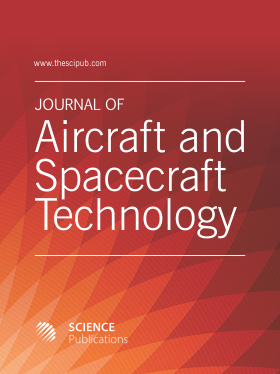Trajectory Optimization for First Human Asteroid Exploration Mission
- 1 Nagpur, India
- 2 Pune, India
Abstract
After the successful completion of robotic expeditions on Mars, an ultimate goal was set for space fairing nations and agencies around the world to send astronauts to Mars by 2030. Unfortunately, a mission to Mars would last upwards for years meanwhile several asteroids fly close to the Earth. A manned trip to an asteroid would be a valuable stepping stone towards a manned mission to Mars, as the mission time can be reduced to a few months round-trip. In addition to gaining experience with manned travel through deep space, a mission to an asteroid would provide experience overcoming a unique challenge of rendezvousing with a foreign object in microgravity. Since most of the known asteroids that are close enough to Earth to be viable targets are less than 300 m in diameter, chances are the selected asteroid will not have a significant gravitational field. Near Earth Asteroids (NEAs) have orbits that bring them into close proximity with Earth’s orbit making them both a unique hazard to life on Earth and a unique opportunity for science and exploration. A specific case study was therefore undertaken to shortlist such NEAs that are accessible for round-trip human missions using heavy lift launch architecture. A fully parameterized, highly efficient algorithm is developed using MATLAB to accomplish this. Using this algorithm a family of NEA is reviewed, several candidate asteroids are shortlisted for potential exploration and a final selection of asteroid 1999 AO10 is made followed by a specific mission trajectory design and selection to this asteroid, accounting for mission requirements and constraints. The astrodynamic components of a manned mission to NEA 1999 AO10 are also described in this study. Beginning with a launch, we will walk through preliminary trajectory optimization using Lambert’s problem and patched conics. Once the ideal trajectory is designed, the study will be extended to include abort scenarios.
DOI: https://doi.org/10.3844/jastsp.2020.96.116

- 3,288 Views
- 1,507 Downloads
- 0 Citations
Download
Keywords
- Near Earth Asteroids
- 1999 AO10
- Trajectory Optimization
- Asteroid Mission
- Asteroid Exploration
- Crewed Exploration
